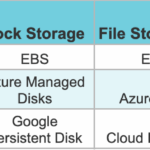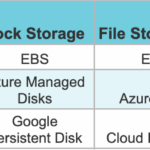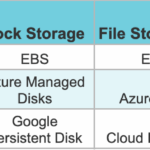pCloud vs ownCloud: Which is the Better Cloud Solution?

pCloud vs ownCloud: Which is the Better Cloud Solution?
Introduction
In today's digital age, cloud storage solutions have become essential for individuals and organizations alike. With the increasing need for secure, accessible, and efficient file sharing and collaboration tools, the market has seen a surge in various cloud solutions. Among these, pCloud vs ownCloud stands out as two prominent options, each offering unique features and capabilities. This article aims to provide a comprehensive analysis of both platforms, focusing on their security features, deployment options, collaboration tools, and overall functionality. By the end of this comparison, readers will have a clearer understanding of which solution may be better suited to their specific needs.
Overview of pCloud
pCloud is a cloud-based file sharing solution that emphasizes high security standards and user-friendly functionality. Established in Switzerland, pCloud operates as a software-as-a-service (SaaS) platform, meaning that users access it entirely online without the option to host it on their own servers or in a hybrid environment. This can be a limitation for organizations that prefer to maintain control over their data by hosting it in their own data centers. pCloud's infrastructure is strategically located in the US and the EU, specifically in Dallas, Texas, and Luxembourg. This geographical distribution may be a consideration for users concerned about data sovereignty and compliance with local regulations. The platform is designed to cater to both individual users and businesses, offering a range of plans that accommodate different storage needs and budgets.
Security Features
When it comes to security, pCloud takes a proactive approach to ensure that user data is protected. One of the standout features of pCloud is its end-to-end encryption, which guarantees that files are secure during transfer and storage. This means that even if data is intercepted, it remains unreadable without the appropriate decryption key. Additionally, pCloud offers a unique feature called pCloud Crypto, which allows users to encrypt their files before uploading them to the cloud. This adds an extra layer of security, as only the user has access to the encryption keys. However, it is important to note that pCloud is a closed-source solution, which means that users must trust the provider to maintain the integrity of their security measures. This aspect may raise concerns for organizations with stringent security requirements, as they cannot independently verify the security protocols in place.
Deployment Options
As a SaaS platform, pCloud does not offer the flexibility of self-hosting. Users must rely on pCloud's infrastructure for data storage and management. While this may be convenient for individuals and small businesses looking for a hassle-free solution, it can be a limitation for larger organizations that require more control over their data. The inability to host the solution on their own servers may also pose challenges for businesses that need to comply with specific data privacy regulations. However, pCloud does provide a seamless user experience, with easy access to files from any device with an internet connection. This can be particularly beneficial for remote teams and individuals who need to access their files on the go.
Related Topic: pCloud vs Icedrive: Which Cloud Storage is Better?
pCloud vs Icedrive: Which Cloud Storage is Better?Collaboration Tools
Collaboration is a key aspect of any cloud storage solution, and pCloud offers a range of features designed to facilitate teamwork. The platform boasts a user-friendly interface that makes it easy for teams to collaborate on files. Users can share files and folders with others, set permissions, and even collaborate in real-time on documents. pCloud also integrates well with various third-party applications, enhancing its functionality and allowing users to streamline their workflows. However, while pCloud provides essential collaboration tools, it may lack some of the advanced features available in other platforms, such as file versioning and activity tracking. This could be a drawback for organizations that require a more comprehensive suite of collaboration tools to manage their projects effectively.
Overview of ownCloud
In contrast to pCloud, ownCloud is an open-source platform that allows users to deploy the software on their own servers. This flexibility is a significant advantage for organizations that require complete control over their data and want to customize their file sharing and collaboration solutions. ownCloud can be integrated into existing IT infrastructures, making it suitable for businesses that prefer a self-hosted solution or need to comply with strict data privacy regulations. The open-source nature of ownCloud also means that users can modify the code to suit their specific needs, providing a level of customization that is not available with closed-source solutions like pCloud. ownCloud is designed to cater to a wide range of users, from individuals to large enterprises, and offers various deployment options to accommodate different requirements.
Security Features
Security is a top priority for ownCloud, and the platform offers a range of features designed to protect user data. As an open-source solution, ownCloud allows users to audit the code and implement their own security protocols, which can be a significant advantage for organizations with specific security requirements. The platform supports end-to-end encryption, ensuring that files are secure during transfer and storage. Additionally, ownCloud provides options for two-factor authentication, which adds an extra layer of security by requiring users to verify their identity through a secondary method. This level of customization and control over security measures can be particularly appealing to organizations that handle sensitive data and need to comply with strict regulatory standards.
Deployment Options
One of the most significant advantages of ownCloud is its deployment flexibility. Organizations can choose to host the software on their own servers, which allows for complete control over data management and security. This self-hosting option is particularly beneficial for businesses that need to comply with specific data privacy regulations or have unique security requirements. Additionally, ownCloud can be deployed in a hybrid environment, allowing organizations to combine on-premises and cloud storage solutions. This flexibility makes ownCloud a suitable choice for a wide range of users, from small businesses to large enterprises with complex IT infrastructures. Furthermore, ownCloud offers a user-friendly interface that simplifies the management of files and collaboration tools, making it accessible to users with varying levels of technical expertise.
Related Topic: pCloud vs MEGA: Which Cloud Storage is Best in 2024?
pCloud vs MEGA: Which Cloud Storage is Best in 2024?Collaboration Tools
Collaboration features in ownCloud are robust and designed to meet the needs of teams working on projects together. The platform offers advanced collaboration tools, including file versioning, activity tracking, and integration with other enterprise applications. Users can easily share files and folders, set permissions, and collaborate in real-time on documents. The activity tracking feature allows users to monitor changes made to files, providing transparency and accountability within teams. Additionally, ownCloud supports integration with popular productivity tools, enhancing its functionality and allowing users to streamline their workflows. This comprehensive suite of collaboration features makes ownCloud a strong contender in the pCloud vs ownCloud debate, particularly for organizations that prioritize teamwork and project management.
Comparative Analysis
When comparing pCloud and ownCloud, it is essential to consider various factors that may influence the decision-making process. Below is a comparative analysis of the two platforms based on security, deployment options, and collaboration features.
Security Comparison
Both pCloud and ownCloud prioritize security, but they approach it in different ways. pCloud offers end-to-end encryption and the option for users to encrypt their files before uploading them, providing a high level of security for sensitive data. However, as a closed-source solution, users must trust the provider to maintain the integrity of their security measures. In contrast, ownCloud's open-source nature allows users to audit the code and implement their own security protocols, providing a level of customization that may be appealing to organizations with specific security requirements. Additionally, ownCloud supports two-factor authentication, adding an extra layer of security for user accounts. Ultimately, the choice between the two platforms may depend on the organization's security needs and whether they prefer a closed-source or open-source solution.
Deployment Comparison
Deployment options are a significant differentiator between pCloud and ownCloud. pCloud operates as a SaaS platform, meaning that users must rely on the provider's infrastructure for data storage and management. While this may be convenient for individuals and small businesses, it can be a limitation for larger organizations that require more control over their data. On the other hand, ownCloud offers the flexibility of self-hosting, allowing organizations to deploy the software on their own servers. This self-hosting option is particularly beneficial for businesses that need to comply with specific data privacy regulations or have unique security requirements. Additionally, ownCloud can be deployed in a hybrid environment, providing further flexibility for organizations with complex IT infrastructures. This aspect of ownCloud may make it a more attractive option for businesses that prioritize control over their data.
Related Topic: pCloud vs iDrive: Which Cloud Storage is Better?
pCloud vs iDrive: Which Cloud Storage is Better?Collaboration Features Comparison
Collaboration tools are essential for any cloud storage solution, and both pCloud and ownCloud offer features designed to facilitate teamwork. pCloud provides a user-friendly interface and integrates well with various third-party applications, making it easy for teams to collaborate on files. However, it may lack some advanced collaboration tools that are available in ownCloud, such as file versioning and activity tracking. ownCloud, on the other hand, offers a comprehensive suite of collaboration features, including real-time collaboration, file versioning, and integration with other enterprise applications. This robust set of tools makes ownCloud a strong contender for organizations that prioritize teamwork and project management. Ultimately, the choice between pCloud and ownCloud in terms of collaboration features may depend on the specific needs of the organization and the level of functionality required.
Conclusion
In conclusion, the choice between pCloud and ownCloud ultimately depends on the specific needs and priorities of the organization. If a business prioritizes ease of use, high security, and does not require self-hosting, pCloud may be the better option. Its user-friendly interface and integration with third-party applications make it an attractive choice for individuals and small businesses looking for a hassle-free cloud storage solution. Conversely, if an organization values control over its data, customization, and the ability to host the solution on its own servers, ownCloud would likely be the superior choice. The open-source nature of ownCloud allows for greater flexibility and security customization, making it suitable for businesses with specific regulatory requirements. Each platform has its strengths and weaknesses, and the decision should be based on the unique requirements and priorities of the user or organization. In the ongoing debate of pCloud vs ownCloud, understanding these factors will help users make an informed decision that aligns with their needs.
If you want to discover other articles similar to pCloud vs ownCloud: Which is the Better Cloud Solution?, you can visit the Tools and Reviews category.

Related Posts: